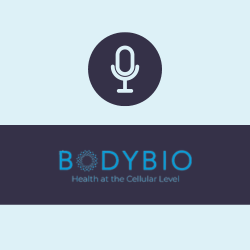People take supplements to improve or optimize their health. So what happens when you look at the label, and the ingredient list is filled with unrecognizable additives?
Welcome to the October 2022 issue of Research Extracts. “The Extracts” is designed to keep busy practitioners and savvy consumers up to date on the latest research on diet, nutrients, botanicals, the microbiome, the environment, and lifestyle approaches to good health. Our medical team, which includes NDs, MDs, PhDs, RDs, an MS, and an LAc, has summarized the essence of several interesting recent studies.
In this issue: (1) this month’s Mental Health Moment – ashwagandha for stress, (2) olive oil for muscle mass in the elderly, (3) prunes for osteoporosis, and (4) antioxidants in cystic fibrosis.

Mental Health Moment: Ashwagandha and Stress

Adaptogenic botanicals support the body’s ability to respond to stress in a balanced way. Ashwagandha is one such botanical that has been studied and used for thousands of years for its properties that support mood, sleep, and memory.* This study evaluated the effects of ashwagandha supplementation on the wellbeing of college students, with particular attention to energy levels, sleep patterns, stress levels, and mental clarity over a 30-day period. Participants received either 700 mg ashwagandha root per day or a placebo, split into AM and PM doses.
Qualitative data was collected through focus group conversations and individual daily check-ins to evaluate students’ experience and changes in overall wellbeing during the study. Students in the ashwagandha group experienced higher energy levels and felt calmer and more levelheaded in stressful situations compared to before the study. They also reported more mental clarity and focus and greater productivity – not reported in the placebo group. The placebo group reported energy with negative connotations, such as “calm but also generally sad” or “energy, but tired.”
Regarding sleep, participants taking ashwagandha reported more restful sleep and waking refreshed after 9-13 days of supplementation. Placebo group participants described varying sleep quality but reported fewer instances of sleeping well compared to the experimental group overall. The stress levels of students were slightly lower in the ashwagandha group, and they were able to adapt and manage stress better than the placebo group. The students receiving the placebo had slightly lower positive affect when dealing with stress and reported feeling more overwhelmed and less able to manage stress effectively.
The study’s findings indicate that ashwagandha can be an effective botanical remedy to support stress, mood, and cognitive function.
Contributed by Carly Duffy, MPH, RD
Baker C, Kirby JB, O’Connor J, et al. The perceived impact of ashwagandha on stress, sleep quality, energy, and mental clarity for college students: qualitative analysis of a double-blind randomized control trial. J Med Food 2022;10.1089/jmf.2022.0042. doi:10.1089/jmf.2022.0042
Can Olive Oil Consumption Maintain Muscle Mass in Aging Individuals?

Loss of skeletal muscle is a common concern of aging because maintaining muscle mass is important for long-term health. When muscle mass declines, the risk of falling increases, while mobility, metabolic function, and the ability to live independently decrease. Although physical therapy is the current standard treatment for muscle loss in older adults, dietary interventions are of increasing interest. A recent review considered whether olive oil might be a dietary strategy for preserving muscle tissue and function.
Factors related to muscle loss during aging include chronic inflammation, oxidative stress, altered mitochondrial function, and environmental stressors. Extra virgin olive oil (EVOO) is an important part of the Mediterranean diet, a well-studied diet that has beneficial effects on health. EVOO, with its known anti-inflammatory and antioxidant properties, is an intriguing dietary component for skeletal muscle maintenance. Studies included in the review showed EVOO is beneficial for muscle health in several ways.
- In human studies, consuming 40-60 mL (roughly 8-12 teaspoons) per day of EVOO led to:
- Improved skeletal muscle tissue and function
- Enhanced protein synthesis in obese older adults
- Increased muscle strength and function in obese older adults
- Animal studies revealed:
- Consuming an oil mixture (75% EVOO, 25% algae oil) for 21 days delayed muscle loss
- EVOO reduced the inflammatory cytokine IL-6 and decreased expression of histone deactylase-4, an enzyme associated with muscle tissue breakdown
Although the authors agreed that EVOO is a promising dietary component for maintaining muscle mass in aging adults, further studies are needed to more closely examine the mechanisms of action and determine whether phenolic compounds in EVOO would be beneficial when supplemented individually.
In addition, the authors recommend future clinical trials to determine whether EVOO consumption in conjunction with standard interventions (physical therapy and exercise measures) could enhance quality of life in older individuals with age-related muscle loss.
Contributed by Jennifer L. Greer, ND, MEd
Salucci S, Bartoletti-Stella A, Bavelloni A, et al. Extra virgin olive oil (EVOO), a Mediterranean diet component, in the management of muscle mass and function preservation. Nutrients 2022;14(17):3567. Published 2022 Aug 30. doi:10.3390/nu14173567
Prunes and Osteoporosis

Prunes are probably not the first thing that come to mind when considering dietary approaches to osteoporosis. But surprisingly, 16 PubMed studies or reviews look at the effect of prunes for various aspects of osteoporosis in men and women.
In the most recent study, 235 postmenopausal women (average age 62) were randomly assigned to eat 50 grams of prunes (n=78), or 100 grams of prunes (n=79), or no prunes (n=78), daily for 12 months. Bone mineral density (BMD) at the hip was evaluated via DEXA scan at the study’s beginning, after six months, and after 12 months. Body composition was evaluated as a secondary outcome.
BMD was maintained in the 50-gram (5-6 prunes) group, while the control group experienced an average 1.1-percent decrease in BMD over the 12-month study. The best results were seen in the 50-gram per day group, which might be in part due to the high dropout rate of 41 percent in the 100-gram group – for possibly obvious reasons. An increase in fat mass was identified in the 100-gram group (apparently due to the increased sugar intake), but not in the control or 50-gram group.
Eating five or six prunes a day, along with other positive diet, lifestyle, and supplement approaches, might be prudent.
Contributed by Kathi Head, ND
De Souza MJ, Strock NCA, Williams NI, et al. Prunes preserve hip bone mineral density in a 12-month randomized controlled trial in postmenopausal women: the Prune Study. Am J Clin Nutr 2022 Oct 6;116(4):897-910. doi: 10.1093/ajcn/nqac189.
Cystic Fibrosis and Vitamin C

Cystic fibrosis (CF) is a genetic disease associated with lung inflammation and mucus buildup that blocks airways and inhibits nutrient absorption, specifically the absorption of fats and the fat-soluble vitamins A, D, E and K. More than 40,000 Americans and 160,000 individuals worldwide are diagnosed annually with CF, with the majority of new cases diagnosed in infants ages two and younger. CF is a life-shortening condition; even with advances in research, new understanding of CF’s mechanism of action, and improved treatment methods, the median life expectancy of individuals with CF is only 40 years.
The high levels of lung and systemic inflammation caused by CF put oxidative stress on the body that hinders physiological processes and damages cells. Antioxidant nutrients like vitamin C protect tissues from oxidative stress by scavenging free radicals and modulating inflammatory responses. The present study found that supplementing CF patients with 1,000 mg of vitamin C daily for 3.5 weeks improved the body’s ability to both absorb and use vitamin E, a fat-soluble vitamin (and another antioxidant). With both of these antioxidant vitamins more present and readily available in the body, cell membranes and tissues are better protected from oxidative stress and cell degradation, which contributes to reductions in overall inflammatory markers throughout the body.
Contributed by Carly Duffy, MPH, RD
Traber MG, Leonard SW, Vasu VT, et al. α-Tocopherol pharmacokinetics in adults with cystic fibrosis: benefits of supplemental vitamin C administration. Nutrients 2022;14(18):3717. Published 2022 Sep 9. doi:10.3390/nu14183717
Share:
Related Posts

Healthy Coffee Alternatives: When to Quit Coffee & What to Drink Instead
Dr Thomas Wnorowski February 16, 2024 Key Points: Does the idea of quitting coffee make you feel all sorts of (terrible) things? It’s common. But

How Your Social Network Impacts Your Mental Health
Austin Ruff April 17, 2024 Humans are inherently social creatures. It’s in our nature to connect and want to be connected to the people around

Microbiota-Gut-Brain Axis: Behaviour and Dementia Implications
People take supplements to improve or optimize their health. So what happens when you look at the label, and the ingredient list is filled with

Gut Bacteria and GABA
People take supplements to improve or optimize their health. So what happens when you look at the label, and the ingredient list is filled with

Unlocking the Power of Phospholipids
Jessica Kane Berman with Nat Niddum Phospholipids provide the building blocks for cell membranes which support healthy brain function. The value of these in longevity


